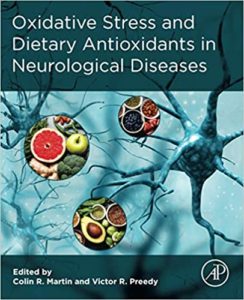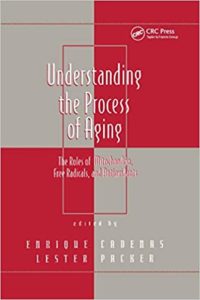A few days ago, a friend mentioned the term oxidative stress, and I must admit that I was totally unfamiliar with it. She also told me about the connection between oxidative stress and premature aging, prompting me to check it out immediately.
During my research on the topic, I found out that oxidative stress and inflammation are intrinsically connected. To better understand inflammation, I refer you to the post I wrote a few weeks ago dedicated to this condition.
Disclaimer: This post contains affiliate links. Should you purchase any product through those links, I may earn a small commission at no additional cost to you. I stand behind all the products I promote.
The current piece will explain what oxidative stress means, what causes it in the body, which factors increase the risk of oxidative stress, what effects it can have on human health (both beneficial and detrimental), and ultimately what to do to combat or prevent it. This blog aims to provide all the information you need to lead a healthier, happier, more abundant life; being knowledgeable about what can harm your health is essential. Read on!
Oxidative Stress and Dietary Antioxidants in Neurological Diseases

What is oxidative stress?
According to the article Oxidative Stress: Harms and Benefits for Human Health written by several health expert authors, “Oxidative stress is a phenomenon caused by an imbalance between production and accumulation of oxygen reactive species (ROS) in cells and tissues and the ability of a biological system to detoxify these reactive products…Several antioxidants have been exploited in recent years for their actual or supposed beneficial effect against polyphenol. While we tend to describe oxidative stress as harmful for the human body, it is true as well that it is exploited as a therapeutic approach to treat clinical conditions such as cancer, with a certain degree of clinical success.”
The above definition uses medical terminology. In simple terms, oxidative stress occurs when there is a disparity between antioxidants and free radicals in the body. This imbalance can hasten tissue and cell damage in the body. Naturally, oxidative stress is a by-product of the body’s aging process, a natural process.
Oxidation is an entirely natural process that your body must undertake. Oxidative stress occurs when there is an imbalance of free radicals and antioxidant defenses. Antioxidants can neutralize the impact of free radicals that caused oxidative stress.
However, if not strictly controlled, oxidative stress can be responsible for the induction of several diseases, both chronic and degenerative, speed up the body aging process, and cause acute pathologies, such as trauma and stroke.
To understand the process of oxidative stress, it is essential to know the meaning of the two main elements involved in it: antioxidants and free radicals.
What are antioxidants?
Molecules that can donate an extra electron to a free radical without becoming unstable themselves are known as antioxidants. Some common examples of antioxidants are vitamins A, C, and E. Both free radicals and antioxidants can emerge from different sources. Fruits and vegetables contain minerals and vitamins required by the body to form antioxidants.
What are free radicals?
Molecules that contain oxygen but an uneven number of electrons are known as free radicals. Due to their very reactive or unstable nature, free radicals can prompt significant chemical reactions in the body when they combine with other molecules; when free radicals react with other molecules, the process is known as oxidation.
I know this sounds like a chemistry lesson, so in simple terms, your body needs free radicals because they help fight pathogens. If left unchecked, pathogens can make you sick.
The effects of oxidative stress can be beneficial or harmful to the body.
Your body naturally produces free radicals when you engage in physical activity. This is an example of temporary oxidative stress, which can be helpful for the body. It has been studied that mild oxidative stress is favorable to avoid infections and diseases in the body.
However, when these free radicals outnumber the antioxidants that are supposed to keep them in check, they can wreak havoc in your body, causing damage to your DNA, proteins, fatty tissues and even accelerate the aging process. That damage can have very adverse consequences, including:
- Inflammatory diseases (Rheumatoid Arthritis)
- Heart diseases
- Diabetes
- Cancer
- Neurodegenerative diseases such as Alzheimer’s and Parkinson’s disease.
- Asthma
- Accelerated aging
- Respiratory diseases
- Kidney diseases
- Delayed sexual maturation and puberty onset
Oxidative stress and free radicals are confirmed to be responsible for several pathological conditions affecting different tissues and systems, thus, being one of the most important and pervasive harms to human health.
Understanding the Process of Aging

What increases the risk of oxidative stress?
Free radicals are not inherently harmful; the body makes free radicals naturally in response to exercise and inflammation; it is a healthy part of the body’s natural function.
However, you may be exposed to free radicals from the following:
- Some cleaners and pesticides
- Pollution
- Obesity
- Ozone
- Radiation
- Alcohol consumption
- Cigarette smoke
- Cannabis smoke
- A diet unusually high in alcohol, fat, and sugar
Oxidative stress resulting from lifestyle reasons can also play an important role in cancer development, as suggested by the strong correlation between dietary fat consumption (a factor that exposes the organism at greater risk of lipid peroxidation) and different death rates from other types of cancer.
The main thing you can do is increase your antioxidants levels and decrease your formation of free radicals.
Preventing oxidative stress in the body
The body cannot do without antioxidants and free radicals. But it needs to maintain an even balance between both. If they are unbalanced, it may cause several health problems. Specific changes to your diet and lifestyle can help reduce the possibility of oxidative stress in the body.
Some of these changes include:
- Limiting the consumption of heavily processed food.
- Avoiding a diet high in added sugar and fat.
- Eating a nutritious and balanced diet, including vegetables and fruits.
- Quitting smoking.
- Reducing the consumption of alcohol.
- Managing stress.
- Exercising regularly.
- Getting enough sleep.
- Avoiding harsh chemicals and pollution.
Some studies suggest that maintaining a healthy body weight may also be vital to preventing oxidative stress.
Foods to help reduce oxidative stress
Nutrients high in antioxidants can help combat and prevent oxidative stress.
If not already, your diet should include:
- Berries
- Broccoli
- Spinach
- Collard greens
- Carrots
- Avocados
- Sweet potatoes
- Pecans
Other interesting facts
Poor gut health is another contributor to oxidative stress. This process can lead to chronic inflammation.
The natural immune response can cause oxidative stress temporarily, further leading to mild inflammation. It goes away when the immunity strength of the body against the infection is increased.
The current post could work as a follow-up to my previous two posts about the anti-inflammatory diet and how to build a robust immune system.
Final thoughts
Oxidative stress is a result of the imbalance of free radicals and antioxidants in the body. While free radicals and antioxidants are necessary for your body to function, they must be in a balanced ratio. Oxidative stress is known to accelerate aging and harm your DNA and protein cells.
Oxidation is a natural process that comes with age. Our bodies “rust” as we get older; we cannot stop that. However, a healthy lifestyle combined with good environmental and dietary changes can help keep this delicate mix of free radicals and antioxidants in your body in balance and ultimately prevent oxidative stress and its effects.

